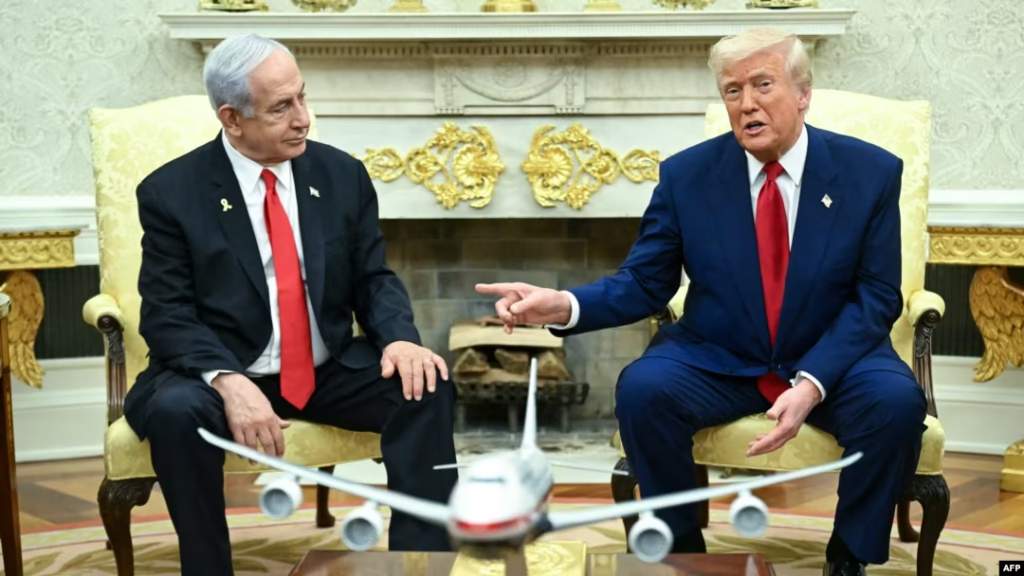
WASHINGTON In a surprise announcement alongside Israeli Prime Minister Benjamin Netanyahu, U.S. President Donald Trump declared Monday that his administration is engaged in direct talks with Iran regarding its nuclear program. The statement was swiftly denied by Tehran, which acknowledged only indirect negotiations mediated by Oman.
“If the talks aren’t successful,” Trump warned, “it’ll be a very bad day for Iran.” He emphasized that diplomacy is preferable to military conflict, saying, “Everybody agrees that doing a deal would be preferable to doing the obvious,” referring to potential military intervention.
Tehran, through its foreign ministry and officials quoted by Iranian and international media, insisted the discussions remain indirect. Iranian Foreign Minister Abbas Araghchi confirmed high-level negotiations in Oman, describing the process as “a test” and placing the onus on the United States.
Netanyahu, appearing cautiously supportive, said that if diplomacy could fully dismantle Iran’s nuclear capabilities, it would be “a good thing,” but stressed that Iran must not be allowed to obtain nuclear weapons “one way or another.” Trump reiterated that his goal is a stronger, more enforceable deal than the 2015 nuclear agreement, which he abandoned during his first term in office.
Amid growing regional tension, the U.S. has deployed additional military assets to the Middle East, including stealth bombers and a second aircraft carrier, signaling readiness for escalation if diplomacy fails.
Separately, Netanyahu said efforts were underway to secure a new hostage release deal and ceasefire in Gaza. The October 7 Hamas-led attack on Israel left around 1,200 Israelis dead and 251 taken hostage. An Egyptian proposal reportedly includes a 40–70-day truce and an exchange involving eight living hostages and eight bodies for a large number of Palestinian prisoners.
Trump expressed hope that the war in Gaza would end “in the not-too-distant future,” and praised Netanyahu’s commitment to resolving the hostage crisis. He also promoted his controversial plan for a U.S.-controlled reconstruction of Gaza, stating, “Having a peace force like the United States there controlling and owning the Gaza Strip would be a good thing.”
Previous ceasefires in November 2023 and January 2025 led to the release of dozens of hostages, but talks for a permanent resolution collapsed. Both Trump and Netanyahu stressed continued efforts to reach a comprehensive deal.
Keep reading questiqa world. Get more News Headlines On Our Social Platforms And Do Follow.

